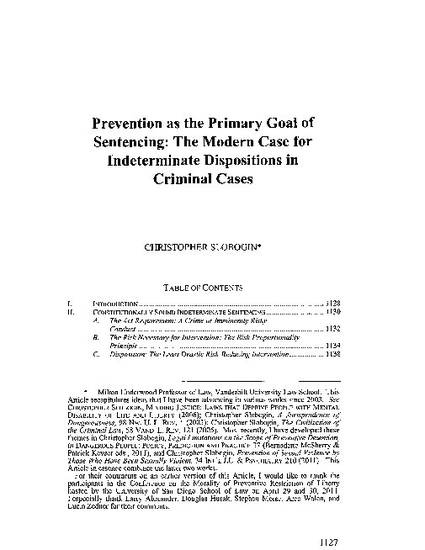
- sentencing,
- indeterminate sentences,
- risk assessment,
- parole,
- criminal punishment,
- principle of legality,
- preventive detention
- Criminal Law and
- Law
Among modern-day legal academics determinate sentencing and limiting retributivism tend to be preferred over indeterminate sentencing, at least in part because the latter option is viewed as immoral. This Article contends to the contrary that, properly constituted, indeterminate sentencing is both a morally defensible method of preventing crime and the optimal regime for doing so. More specifically, the position defended in this Article is that, once a person is convicted of such an offense, the duration and nature of sentence should be based on a back-end decision made by experts in recidivism reduction, within very broad ranges set by the legislature. The territory covered in this Article, particularly as it addresses the debate between deontological retributivists and utilitarians, is well-trodden. But this Article seeks to provide new perspectives on the morality, legality, and practicality of indeterminate sentencing. It starts with an outline of what a properly constituted indeterminate sentencing regime would look like. It then defends this regime against numerous objections.
Available at: http://works.bepress.com/christopher-slobogin/33/
